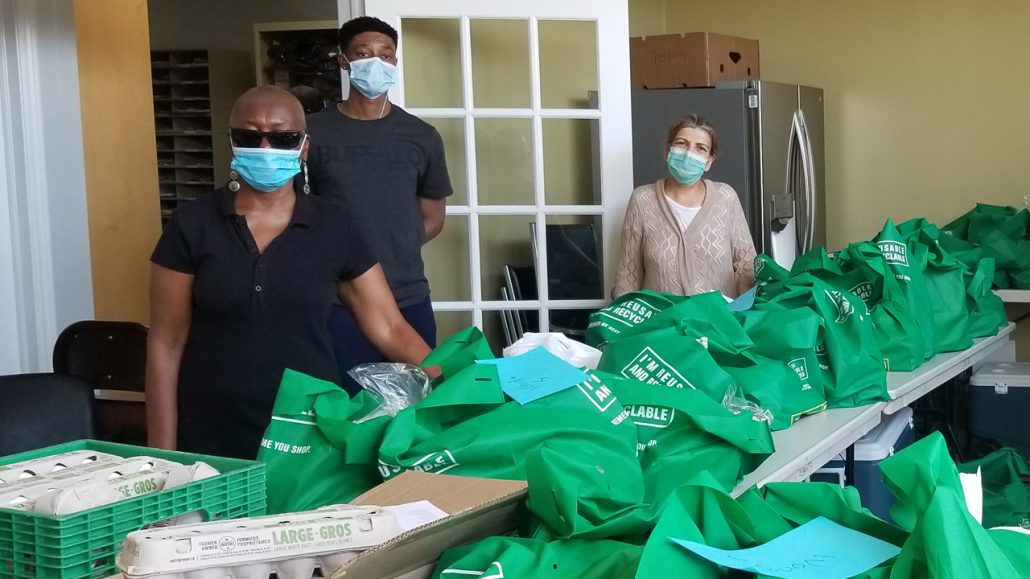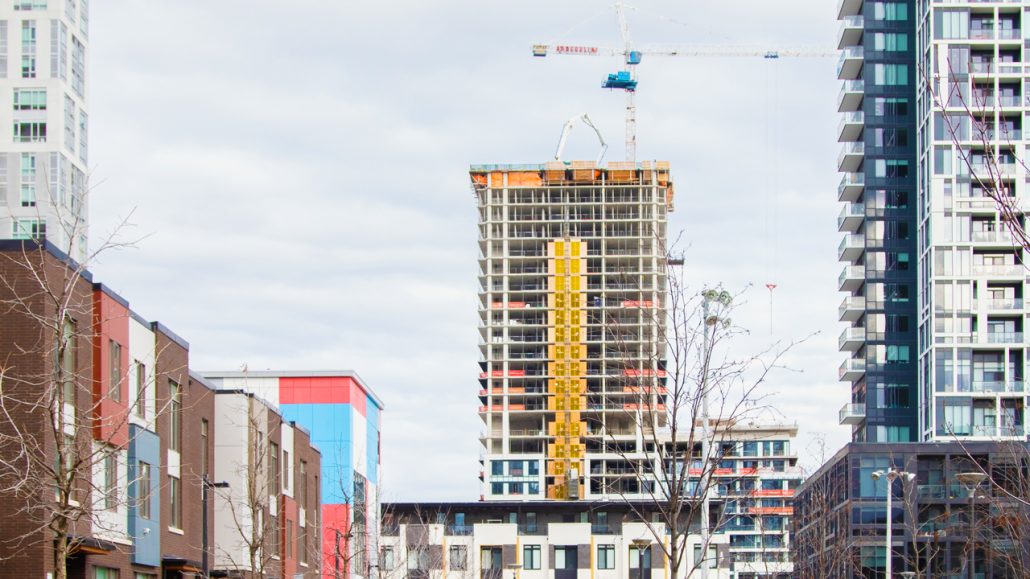
Local organizations are innovating through our Community Collaboration Tables to meet the unique needs of the neighbourhoods they serve
Dear Friend,
Last week, United Way joined with the City of Toronto to celebrate 25 amazing community organizations that were essential to the city’s response to the pandemic, including many organizations that we’re honoured to fund and support. Many are also our partners at the Community Collaboration Tables we lead.
These organizations have been essential voices at the tables, which we established as a response to the pandemic but have since become a critical part of our work across Toronto as well as in Peel and York Region. The tables are a driving force behind the innovative, local solutions that are ensuring neighbourhoods have their immediate needs met, including food security and access to services.
What does that look like on the ground?
- After surveying the food assets and deficits in the area, the North Etobicoke Table is looking to establish an affordable food market spearheaded by award-winner Rexdale Community Hub and funded by United Way.
- The Black Creek Humber Summit Table has taken a high-tech approach, developing an online food portal that allows residents to indicate their food needs, making it easier for agencies to meet them.
- At the other end of town, the East York Don Valley Table is strengthening and supporting resident-led food access groups.
These are just a few examples of the important work being accomplished by these collaborations on issues ranging from food access and security to settlement to mental health and inequities. Each table leveraging their collective experience and expertise to meet immediate need. Each solution tailored to their unique neighbourhoods.
It’s work well worth celebrating. And it’s work we at United Way will support as catalysts, collaborators, facilitators, funders. I hope you’ll continue to join us in these efforts. Because as we learned during the pandemic, the only way we can get to the GTA we want is by working in a truly united way.
Always, and only, thank you.
Daniele Zanotti
President & CEO
United Way Greater Toronto
Things to Know Right Now

Provincial Budget
The provincial budget was released last week, and while we’re happy to see additional funding go towards homelessness prevention, supportive housing programs, and mental health and addictions services, there are few new measures aimed at easing the housing affordability crisis. As our partners at the Wellesley Institute have pointed out, the GTA lost more than 130,000 rental units that cost less than $1,500 per month between 2016 and 2021. To address this crisis, we need to create new affordable housing—something the budget did not address—and preserve the affordable housing supply we have, as we’ve outlined in our research. United Way will continue to work with our government, corporate and community partners to provide immediate housing relief, while also advocating for systems-level solutions in the fight against poverty.
Affordability Crisis
A new report from StatsCan has found that credit card debt in Canada was 13.8 per cent higher in December than a year earlier, rising to $93.4 billion, with more families forced to pay for essentials with debt and payday loans. Leila Sarangi, national director of United Way-funded Family Service Toronto’s Campaign 2000, which works to end child and family poverty, says this creates a cycle of debt that is hard to escape, especially for lower-income households. At United Way, we’re meeting the urgent needs brought on by this crisis by providing funding to agencies that provide food access, transitional housing and other basic needs.
Racism and Discrimination
A new report shows that 76 per cent of Black people in Toronto experience discrimination at least a few times a month—whether in the form of insults, threats, harassment or microaggressions—leading to lower life satisfaction, poorer mental health and less economic security. United Way invests in programs and services that address racism and discrimination as root causes of poverty and supports a range of Black-led solutions that advance Black mental health and equity in our region. That includes funding programs that address the social determinants of health for Black communities, including Tropicana Community Services‘ academic skills building and youth development programming and employment support offered by CEE Centre for Young Black Professionals.
Precarious Employment
The nature of work has changed drastically, but benefits haven’t kept pace. In the past 30 years, 60 per cent of all job growth has come from temporary work, part-time work, self-employment and the digital gig economy. Women, newcomers, racialized individuals and youth make up a disproportionate number of people who work in these precarious jobs with little to no access to health benefits, meaning they either have to pay out-of-pocket for health expenses or go without. Access to decent work is necessary in the fight against poverty, and that comes with full employment rights, health benefits, a living wage, and enough stability to meet basic needs while building for the future. To this end, we’ve worked with partners on a portable health benefits program submission, which would see all workers have access to affordable health benefits and better reflect the needs and realties of today’s workforce.
Get Involved

Storefront Starter
Do you want to start a retail business in the Greater Golden Mile of Scarborough? Then the ILEO Storefront Starter program is for you! It’s a free program that will help you build your business in the Greater Golden Mile. The program includes more than 40 hours of business training from Business in the Streets, retail opportunities facilitated by BRIKA in prime locations in Toronto, access to start-up capital and the opportunity to build relationships with some of Canada’s largest corporations. Applications for the 2023-24 program are due April 10, 2023.